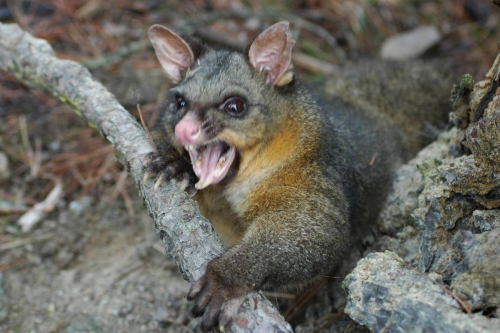
Current filter:

To celebrate Biosecurity Week, the Regional Council is highlighting the good mahi going on round the region.
Biosecurity is about protecting our environment from threats, such as pests, so that our native biodiversity can thrive and so that our economy and cultural values are protected. The work the Regional Council does in this space includes controlling animal, plant, and marine pests.
Regional Council Manager Catchment Services Campbell Leckie says biosecurity is so important when it comes to looking after our environment, and can only be successful when everyone does their bit.
“The principle is partnership. We’re a small part of the biosecurity picture in New Zealand, but when everyone does their bit we can make a big difference.
“It’s increasingly important in New Zealand, particularly with our economy’s reliance on primary industries, that we protect our biodiversity which is being increasingly threatened by a wider range of pests.”
The Regional Council’s biosecurity and biodiversity teams work together towards healthy and functioning biodiversity and halting biodiversity decline.
Animal pests - possums
Possums are a threat to native biodiversity because they eat native wildlife, including the eggs and young offspring of native birds. They also threaten agriculture because they spread bovine Tuberculosis and graze pasture and crops.
The Regional Council has run a possum control programme in Hawke’s Bay for over 20 years. 90% of the non-conservation land in Hawke’s Bay, around 710,000 hectares, is part of this hugely successful programme. The Regional Council has supported the farming community in their possum control, but the programme has been mainly driven by the farming community. As a result, possum numbers are under control in the region with less risk to biodiversity and from Bovine Tuberculosis.
Plant pests – Chilean Needle Grass
Plant pests can cause issues by out-competing other plants, such as pasture grass, and can hurt animals. Chilean Needle Grass is a Total Control Pest plant that takes over large areas if left uncontrolled, and can cause abcesses on animals.
One way the Regional Council controls this plant is by working with cement and gravel organisations when they extract material for buildings and roads. Sometimes Chilean Needle Grass can be found in rivers, so the Regional Council works with contractors to ensure it isn’t spread when moved from rivers to worksites. When there is a risk the grass might be spread, the contractor can use the affected gravel for paving a road or in a building, where it doesn’t pose a risk of spreading.
Marine pests – hull cleaning
Marine pests compete with and prey on native species, modify natural habitats, affect marine industries, and alter ecosystem processes. Once here, they are difficult and expensive to get rid of.
A new marine pest management programme run by the Regional Council has engaged Napier Port and other marine stakeholders in reducing marine pests, with hull cleaning practices. By making sure boats have clean hulls, the chance of pests coming into our waters is reduced.
Find out more about the Regional Council's pest management programme here.
22 July 2019
Disclaimers and Copyright
While every endeavour has been taken by the Hawke's Bay Regional Council to ensure that the information on this website is
accurate and up to date, Hawke's Bay Regional Council shall not be liable for any loss suffered through the use, directly or indirectly, of information on this website. Information contained has been assembled in good faith.
Some of the information available in this site is from the New Zealand Public domain and supplied by relevant
government agencies. Hawke's Bay Regional Council cannot accept any liability for its accuracy or content.
Portions of the information and material on this site, including data, pages, documents, online
graphics and images are protected by copyright, unless specifically notified to the contrary. Externally sourced
information or material is copyright to the respective provider.
© Hawke's Bay Regional Council - www.hbrc.govt.nz / +64 6 835 9200 / info@hbrc.govt.nz